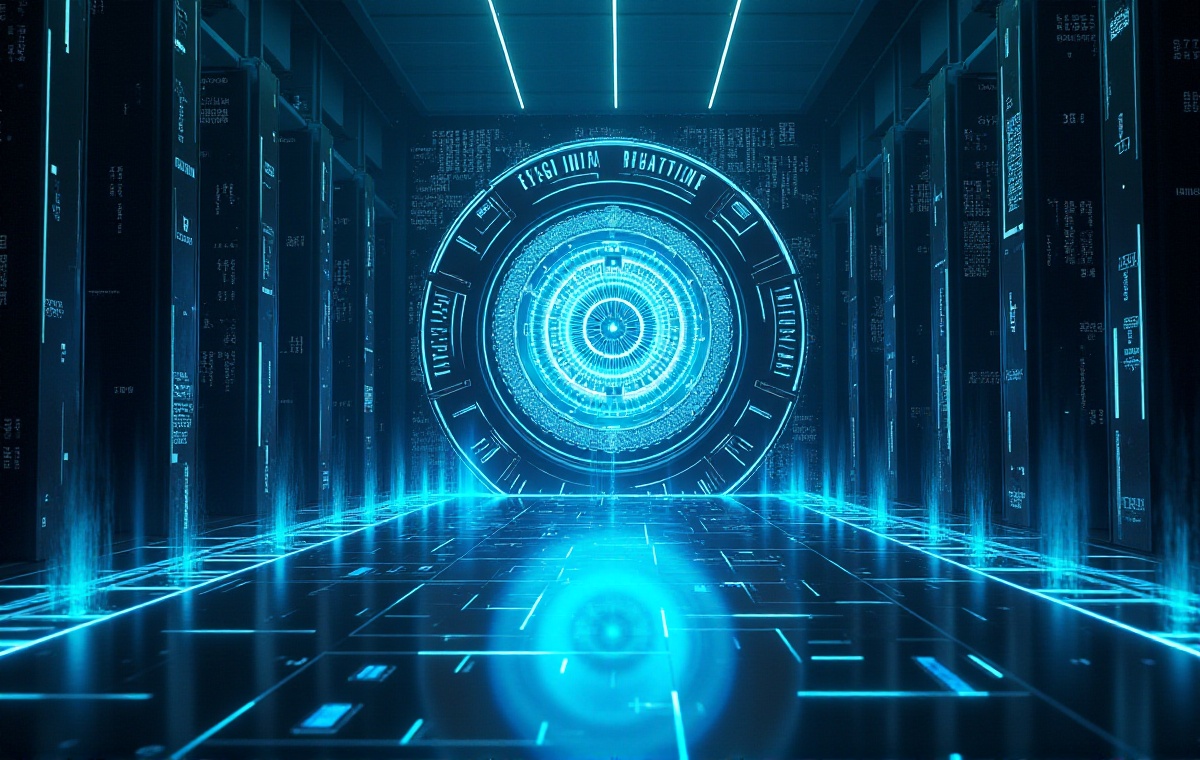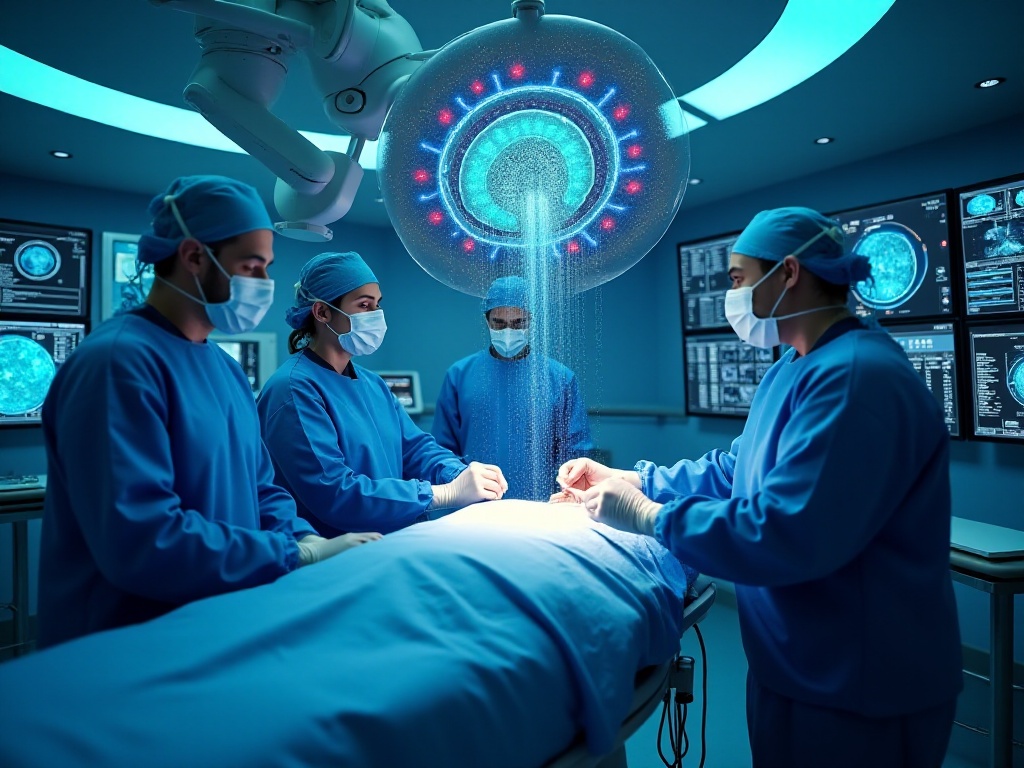Opening Chat
I've been pondering a fascinating question lately: to what extent can artificial intelligence help doctors with diagnosis? As a blogger who tracks the AI medical field daily, I find this question incredibly interesting. You might think this is obvious - everyone knows AI can analyze medical images. But don't jump to conclusions just yet - there's a lot more to unpack here. Let's explore all aspects of this hot topic together.
Speaking of this topic, I'm reminded of an experience I had recently at a medical technology forum. A doctor friend was telling me that when he first started using AI-assisted diagnostic systems, he was somewhat resistant, thinking it was just a more advanced computer program. But after using it for a while, he became completely won over, calling it the "ultimate assistant" for doctors.
Surprising Findings
The latest research results are jaw-dropping! AI has completely surpassed human doctors in certain medical imaging diagnostic areas. A groundbreaking study released by Stanford Medical School in early 2024 sent shockwaves through the medical community. Their AI system achieved 94.6% accuracy in breast cancer screening, completely outperforming experienced radiologists' average accuracy of 92.1%.
This gap might seem small, but its practical significance is huge. For example, if a community hospital screens 10,000 cases of breast cancer annually, this 2.5% accuracy difference means AI could identify an additional 250 potential cancer cases. In cancer treatment, early detection equals an extra chance at life.
Moreover, this isn't an isolated case. AI has shown extraordinary capabilities in multiple areas, including lung nodule detection and retinopathy diagnosis. For instance, in late 2023, an AI system developed by a renowned medical technology company achieved an astounding sensitivity of 96.8% in lung nodule detection, with a false positive rate of just 0.3% - such precision is simply remarkable.
In-Depth Analysis

Diagnostic Advantages
The reasons behind AI's impressive capabilities are fascinating. First, AI's "eagle eye" is absolutely incredible - it can detect subtle features invisible to the human eye. As a radiologist friend of mine said, some early pathological features might only be a few pixels in size, easily missed by human eyes, but AI never overlooks these details.
Secondly, AI is like a "perpetual motion machine" that never knows fatigue. Think about it - human doctors' attention inevitably declines after reviewing many images, but AI can work 24/7 while maintaining peak performance. I've heard that some hospitals' AI systems can analyze tens of thousands of medical images daily - that's incredible efficiency.
Finally, AI's learning ability is truly remarkable. It can simultaneously analyze hundreds of thousands of medical images and identify patterns. Keep in mind, it might take a human doctor over a decade to accumulate such experience. Plus, AI's "memory" is exceptional - it never forgets what it learns.
I remember attending a medical AI symposium last year where the atmosphere was particularly energetic. A radiology department director from a top-tier hospital shared their experience using AI systems: "Honestly, we were all a bit uncomfortable at first, wondering if it would take our jobs. But after using it for a while, none of us could work without it. We used to get exhausted reviewing images, seeing stars by the end of the day. Now with AI's help, not only has efficiency improved, but it helps us catch details we might have missed. Most importantly, it allows us to focus more on patient communication and complex case analysis."
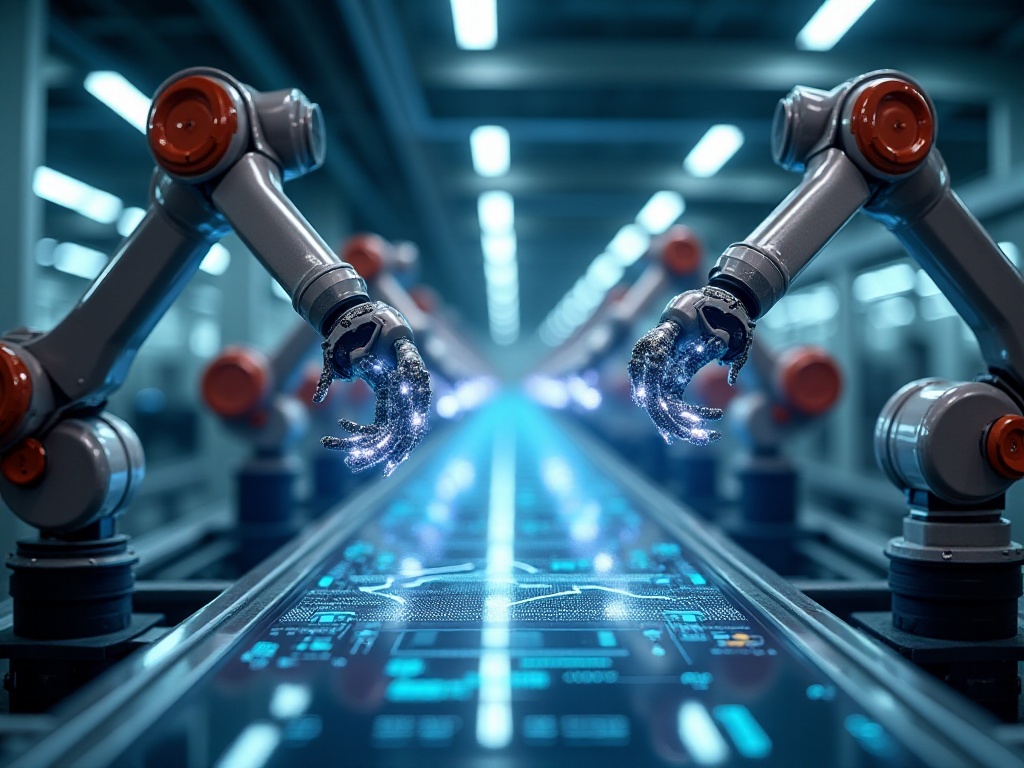
Practical Applications
Major hospitals worldwide are actively embracing AI technology. A fascinating report released by the Mayo Clinic in late 2023 revealed that using AI-assisted diagnostic systems improved diagnostic efficiency by 35% and reduced misdiagnosis rates by 28%. What does this mean? It means doctors can provide more accurate diagnoses to more patients in less time.
It's not just happening abroad - domestic hospitals are also taking action. I recently visited a smart hospital where their AI system was incredibly impressive. AI begins working from the moment patients enter the hospital. From registration, initial screening, and image analysis to medication recommendations, AI's presence is everywhere.
What impressed me most was their intelligent imaging diagnostic center. When doctors review images, the AI system marks suspicious areas in real-time and provides detailed analysis reports. This not only greatly improves diagnostic efficiency but also reduces the risk of missed diagnoses. One doctor joked with me: "Now reviewing images is like playing a game, and AI is my best teammate."
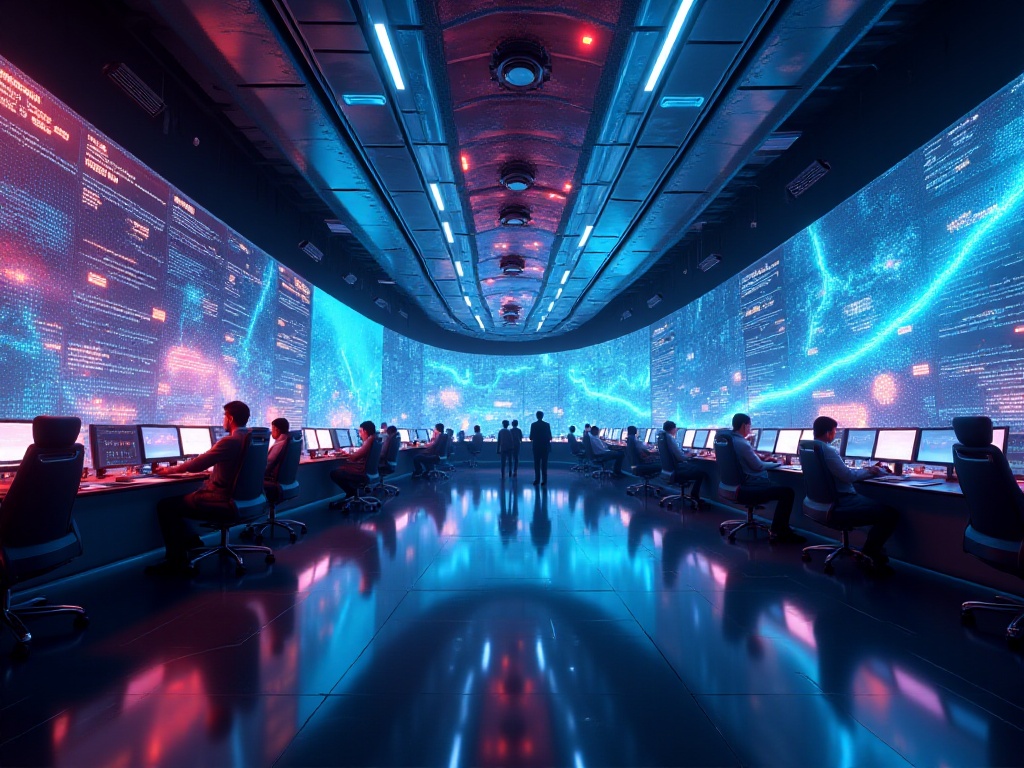
Real-World Challenges
Technical Limitations
After discussing so many advantages of AI, we should also address its limitations. First, AI is like a "specialist" - it can only recognize what it has learned. When encountering rare cases or atypical symptom presentations, AI might be at a loss.
A friend of mine experienced this situation. When he went for a chest X-ray, the AI system didn't detect any abnormalities, but an experienced doctor, using years of clinical experience, noticed subtle abnormal changes. It was later confirmed to be early-stage lung infection. What does this tell us? It shows that AI, no matter how powerful, cannot completely replace doctors' clinical experience and intuitive judgment.
Secondly, AI lacks a "global perspective." It can only see the immediate test results but cannot understand the patient's overall health condition, lifestyle habits, family history, and other important information. It's like seeing just the tip of the iceberg without seeing what's underneath.
Another important issue is data quality. AI system performance heavily depends on the quality and quantity of training data. If the training data is biased or insufficient, AI's judgments may be skewed. It's like how people need good teachers and textbooks to learn.
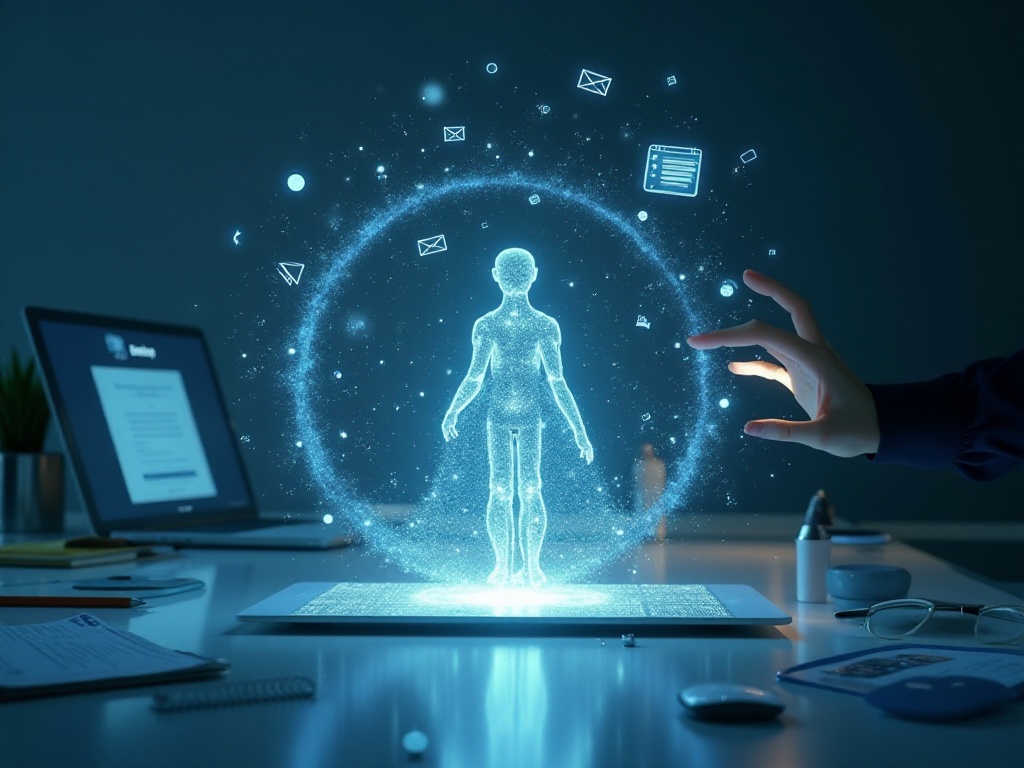
Ethical Considerations
This brings us to an interesting question: if AI and doctor diagnoses differ, whom should we trust? Harvard Medical School conducted a survey in 2023 showing that 76% of respondents would prefer to trust human doctors' judgment. This number is quite thought-provoking.
Why is this the case? I think there are several reasons. First is the trust issue. People still have doubts about AI's decision-making process, viewing it as a "black box" without understanding how it reaches conclusions. Doctors, however, can explain their diagnostic reasoning, and this transparency feels more reliable.
Second is the emotional factor. Medicine isn't just about technology; it's also about human care. Patients need more than accurate diagnoses - they need understanding, comfort, and encouragement. These are things AI currently cannot provide.
I remember an oncologist saying something particularly interesting: "AI can tell you the tumor's size, location, and nature, but it can't hold a patient's hand and say 'don't be afraid, we'll fight this together.' This kind of human care is irreplaceable by any technology."
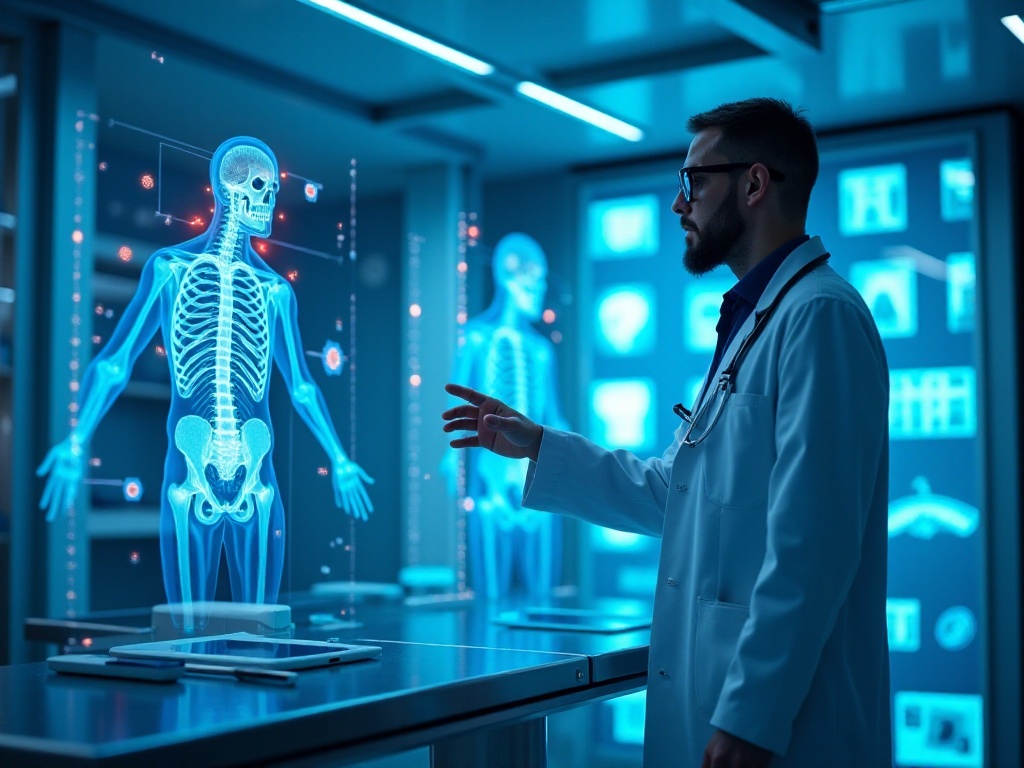
Future Outlook
Speaking of the future, I already have a super cool image in my mind. Imagine, in the near future, every hospital will have a super intelligent medical system. When you walk into the hospital, AI will first access your electronic medical records through facial recognition, then quickly generate initial diagnostic suggestions based on your symptoms and historical data.
Doctors in consultation rooms will have holographic interfaces that can display various test results and AI analysis reports in real-time. They can call up any needed information using voice commands, just like in science fiction movies. But crucially, doctors will remain the leaders of the entire diagnostic process, with AI serving as a super powerful assistant.
I think the ideal state is the "AI+Doctor" golden partnership model. It's like a navigation system when driving - it can provide the optimal route, but the steering wheel remains in the driver's hands. AI handles massive data processing and provides objective analysis, while doctors make comprehensive judgments and develop treatment plans - a perfect combination.
Moreover, with the popularization of 5G technology and development of quantum computing, AI's capabilities will further improve. In the future, AI might not only make accurate diagnoses but also predict disease progression trends and help doctors develop personalized treatment plans. This is truly opening a new era in medicine!
Practical Advice
As ordinary people in this AI medical era, how can we obtain better medical services? Here are some practical suggestions.
First, actively inquire whether the hospital you visit uses AI-assisted diagnostic systems. Many hospitals now indicate this information during registration or on their official websites. If the hospital uses AI systems, don't hesitate to ask doctors about AI's diagnostic opinions for a more comprehensive diagnostic reference.
Second, establish correct understanding. No matter how powerful AI is, it's just an auxiliary tool - don't expect it to solve all problems. The doctor's professional judgment is still key. As a doctor friend of mine said: "AI is like a microscope - it helps us see more clearly, but the person using the microscope is crucial."
Also, develop good habits in maintaining personal medical data. Many hospitals now have electronic medical record systems that can easily export examination reports and imaging materials. This data not only helps future diagnosis but also helps AI systems better understand your health condition.
Final Thoughts
Through this period of in-depth research into AI medical diagnosis, I increasingly feel that technological progress is truly amazing. It not only improves medical efficiency but, more importantly, brings revolutionary changes to medical services. However, we must maintain a clear understanding: AI will always be an assistant enhancing doctors' capabilities, not a replacement.
As an experienced doctor said: "AI allows us to see further by standing on giants' shoulders, but deciding which direction to look still requires doctors' wisdom." This statement particularly resonates with me. No matter how powerful technology becomes, we can't forget that medicine's essence concerns human life and health.
Finally, I'd really like to hear your thoughts. What breakthroughs do you think AI could achieve in medical diagnosis? Feel free to share your views in the comments section. Your ideas might just be the new direction for future medical technology development!

